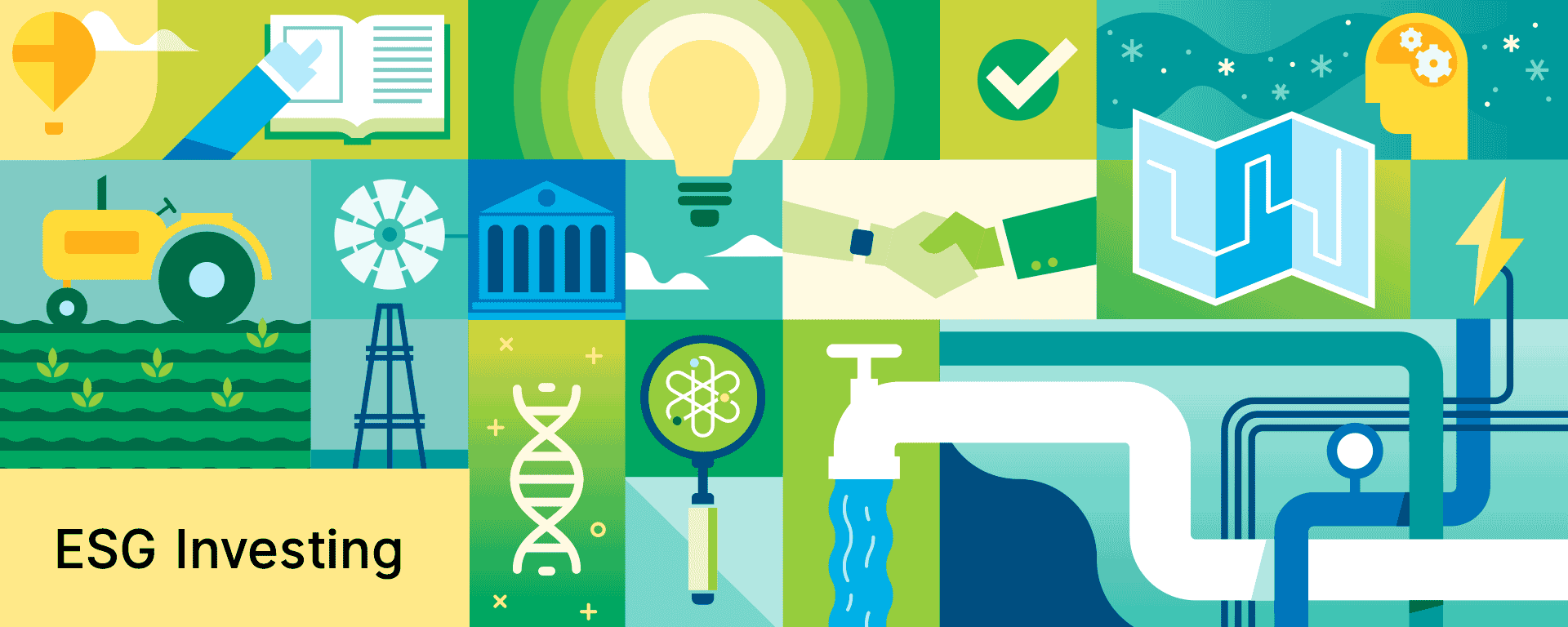An Evidence-Based Approach to ESG Investing Part 1: What Is ESG Investing?
Submitted by Desmond Wealth Management, Inc. on January 3rd, 2021
If there’s one trait nearly everyone shares, it’s a desire to make the world a better place. No wonder there’s so much interest in environmental, social, governance (ESG) investing. Who wouldn’t want to try earning decent if not stellar returns, while contributing – or at least causing less harm – to the greater good?
However, what is “the greater good”? What qualifies as a decent return?
Many Names, Multiple Aims
Many, relatively interchangeable terms have been used to describe how to incorporate moral values into your investing. To name a few, there’s ESG, sustainable, impact and socially responsible investing. We believe ESG investing is currently the most commonly used expression, so it’s the one we’ll use here as well.
Call it what you will, ESG investing is a relatively new and fast-growing field, crowded with opportunities and challenges, perspectives and priorities, words and strategies. So, first things first: We are NOT here to direct your moral compass or to argue for or against traditional vs. ESG investing. Rather, for those who would like to learn more, we offer objective insights, rooted in evidence-based investing.
An evidence-based outlook helps confirm when a promising theory seems robust in reality. It also suggests when it may not pencil out as hoped for – no matter how well-intended it may be. Equipped with solid evidence in an often emotionally charged arena, you will be better able to make informed choices that best fit you, your personal values and your financial goals.
Why Choose ESG Investing?
Different investors embrace ESG investing for different reasons. Your own priorities govern which approach best aligns with your goals.
Financial (Value) Priorities: Some investors may not focus on investing “morally” but may do so anyway if they believe companies with higher ESG rates will deliver higher returns.
Impact (Values) Priorities: Others may not care whether ESG investing translates to higher or lower returns, as long as they can shun “bad” companies and invest in “good” ones.
Blended Priorities: Most investors fall somewhere in between. They want to earn solid returns, or at least not lose money, while investing in principled ways.
How Do We Implement ESG Investing?
Following are ways a fund manager or investment officer may incorporate ESG ratings:
Active Ownership: They may try to improve ESG performance by leveraging their shareholder power to directly influence companies’ strategies and operations. For example, in October 2020, Yale University notified 70 firms managing its funds to expect to be measured on their progress at increasing staff diversity. Will Yale’s actions influence these firms’ HR practices? Time will tell.
Negative Screening: They may explicitly exclude firms with low ESG ratings. (“This company is too ‘wicked’ to belong in our fund.”)
Positive Screening: They may explicitly include firms with high ESG ratings. (“This company is at least ‘good enough’ to belong in our fund.”)
Integration (Inclusion) Strategies: They may integrate ESG ratings into their total fund management strategy. In other words, ESG ratings become one among a number of factors driving if and when to include or exclude a security from the mix.
What Kinds of ESG Investments Are Available?
Investors currently have access to a range of ESG investments that use active ownership, screenings, integration strategies or a blended approach. Overall, we see three main types.
- Evidence-Based Investing: Evidence-based fund managers are likely to use broad ESG integration (inclusion) strategies to complement their funds’ overarching goals. They also may engage in active ownership on behalf of their shareholders. Blending the principles of evidence-based investing with ESG ratings should help investors:
- Continue to use sound portfolio construction principles (such as asset allocation, global diversification and cost control).
- Avoid less-efficient tactics (such as picking or avoiding specific stocks or sectors based on forecasts or popular appeal).
- Apply ESG accountability as an overlay (judiciously including the best-rated and/or excluding the worst-rated companies within an overall, well-structured portfolio).
- Socially Responsible Investing (SRI): SRI funds are more likely to prioritize screening strategies (out with the “bad,” in with the “good”), ahead of the tenets of evidence-based investing. Their strategies may involve making security- or sector-specific judgments or forecasts. An SRI fund may appeal to those who don’t mind sacrificing some expected returns if it means they can better align their investments with their personal values.
- Impact Investing: Impact investors are on a mission to not just invest in a venture, but to become an altruistic partner. For example, if you donate to a GoFundMe® campaign for creating eco-friendly alternatives to plastic water bottles, you’ve just become an impact investor. On a grander scale, wealthy investors may take on private equity or debt structures with an eye toward making a direct impact with their funding. In this context, an impact investor’s highest priority is to fund a cherished cause, with less regard for how the “investment” works out.
Again, names and labels can vary. So, before you invest, read the fine print on what you’re actually buying and how much it’s going to cost you!
Which ESG Investments Are Right for You?
As described above, none of the possibilities are inherently right or wrong. It depends on whether you are more value- or values-driven… or equally both.
Also, ESG investing doesn’t have to be an “all or nothing” proposition. For example, you could use evidence-based ESG or even traditional investing for the core of your portfolio, while participating in impact investing with some of your discretionary income.
Once you’ve chosen your desired approach, how do you find the right investment fit for you? In our next piece, we’ll explore the challenges and opportunities that await today’s ESG investor.

